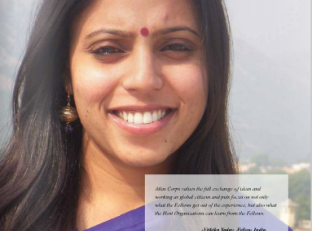If you don’t talk about sex, how will you end sexual violence? Human rights activist Vithika Yadav faces this dilemma time and again.
Vithika Yadav promotes sex education in her native India, in her words a “progressive country with a huge set of problems.” Among these problems are taboos surrounding sexual and reproductive issues.
Yadav looks back on a childhood filled with laughter, but like many other Indian women she also remembers being subjected to groping when she ventured outside. It was treated as “normal” for men to grab girls and women’s breasts, but the women were expected to feel shame. And in the conservative Indian society where Yadav grew up, issues like this were never discussed.
Vithika Yadav is proud of India’s vibrant culture and expansive history, but she pulls no punches about the country's problem with sexual exploitation. “Women,” she says “are bought and sold as commodities.”
It was in her college years that her eyes were opened to India’s rampant sexism. Yadav discovered that her peers, professors and others were openly discussing gender rights and other topics hushed by mainstream society.
The debating transformed her into an advocate for women’s and children’s rights and a fierce opponent of human trafficking and modern day slavery.
Today, Yadav openly calls for better sex education for India's youth. After more than nine years of tireless campaigning, she perceives a change in urban India’s sexual landscape. More and more, the need for sex education is being publicly discussed.
“Any movement takes time,” she says, but India has taken the first step by starting a conversation about sex. And conversation is the only way to break down the conservative taboo on talking about sexuality in the public arena, adds Yadav. “Unless we educate and talk to people about sex, sexuality and gender, things will never change.”

